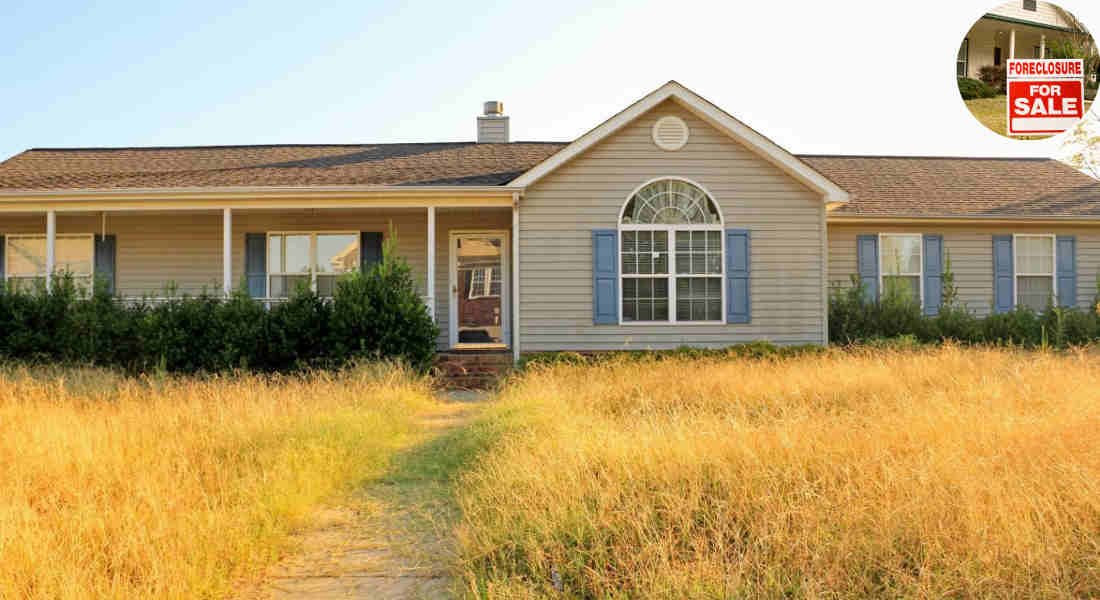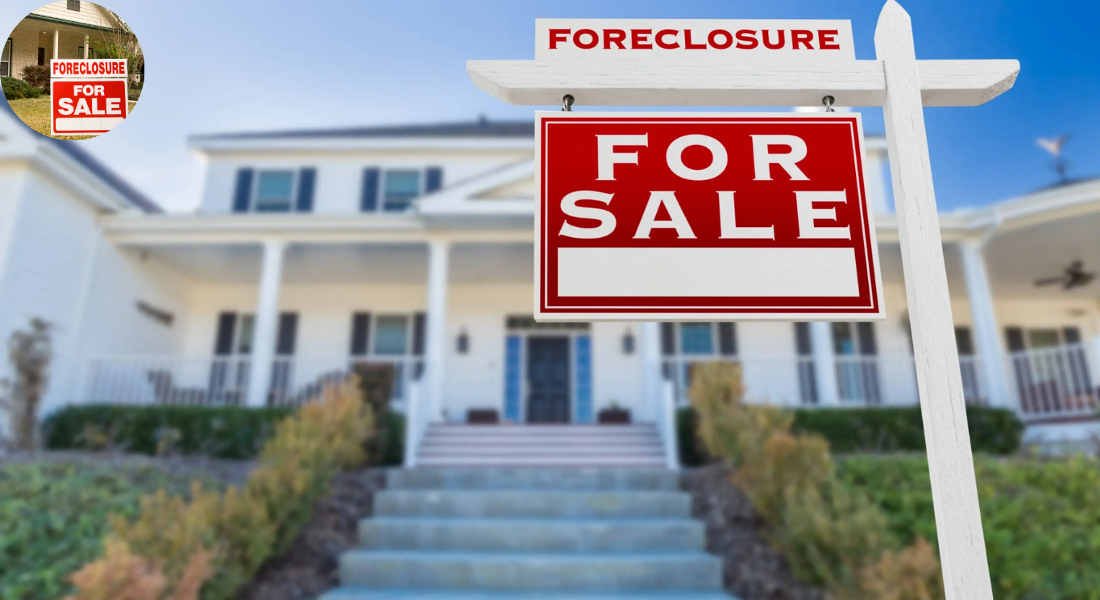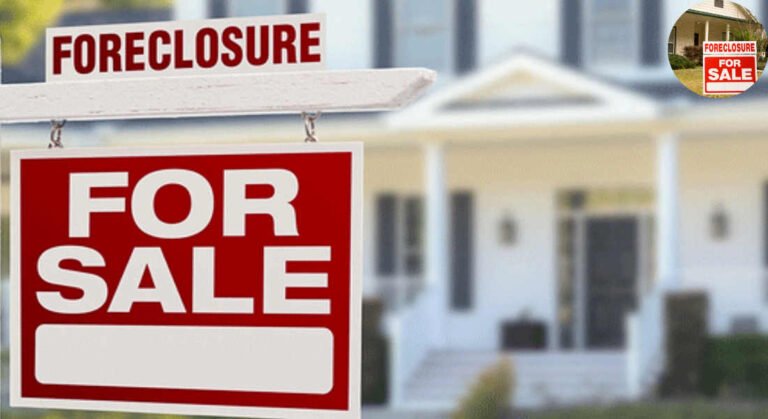Exploring payment options for foreclosed homes is essential for prospective buyers who want to take advantage of the significant discounts these properties often offer. Foreclosed homes are typically sold “as is” and can be purchased through various channels such as auctions, lender-owned sales, or short sales, each with unique financing considerations and risks. While many buyers pay cash, several government-sponsored financing programs are available to help those who qualify, including FHA 203(k) loans that cover purchase and repair costs, Fannie Mae’s HomePath ReadyBuyer program offering closing cost assistance, and Freddie Mac’s HomeSteps program which can eliminate mortgage insurance requirements. Understanding these options can help buyers navigate the challenges of purchasing foreclosed properties, manage repair costs, and secure favorable financing terms to make the most of these investment opportunities.
Understanding Foreclosed Homes
Foreclosed homes are properties that have been repossessed by lenders due to the previous owner’s inability to keep up with mortgage payments. This process often leads to significant reductions in property value, which is why many buyers find them appealing.
Typically, a foreclosure occurs after a series of missed payments. The bank or lender takes ownership and puts the home on the market, aiming to recover their losses. These homes come in various conditions, from pristine move-in ready houses to fixer-uppers needing extensive repairs.
Understanding the nature of foreclosures is crucial for potential buyers. Each property will have its own set of challenges and opportunities. Knowing what you’re getting into can make all the difference when navigating this unique segment of real estate.
Benefits of Purchasing a Foreclosed Home
Purchasing a foreclosed home can be an exciting opportunity. One of the most significant benefits is the potential for substantial savings. Foreclosures are often priced below market value, allowing buyers to snag a property at a bargain.
From single-family homes to condos and multi-unit properties, there’s something for everyone. This diverse selection means you can find a home that fits your specific needs.
As neighborhoods improve and real estate values rise, your investment could appreciate considerably.
Buying a foreclosed home also opens doors for renovation projects. Many properties allow you to customize spaces according to your taste while increasing their overall value simultaneously.
You may also read (do you pay sales tax on a used mobile home).
Payment Options Available for Foreclosed Homes
When considering the purchase of a foreclosed home, understanding your payment options is crucial. Cash payment is often a concern for buyers.. While cash offers can be advantageous, there are several alternatives available.
Traditional mortgage loans are one popular option. They allow you to finance the purchase over an extended period, making it more manageable for most buyers.
Government programs also play a significant role in this market. Programs like FHA and VA loans offer low down payments and favorable terms tailored for various financial situations.
For those looking beyond conventional avenues, private lenders provide another route. These lenders may have less stringent requirements but often come with higher interest rates.
Each option has its benefits and drawbacks, so thorough research is essential before making any decisions about financing your foreclosed home purchase.
Traditional Mortgage Loans
Traditional mortgage loans are the most common way to finance a home purchase, including foreclosed properties. These loans typically require a down payment of around 3% to 20%, depending on various factors such as credit score and lender guidelines.
Depending on your financial profile, interest rates can vary greatly. A lower rate means lower monthly payments, making it easier to manage your budget. Lenders often look for solid credit histories and reliable income sources when considering applications.
One advantage of traditional mortgages is that they offer long repayment terms—often 15 or 30 years. This flexibility allows buyers more time to pay off their debt without straining finances too much upfront.
While these loans provide stability, it’s essential to compare offers from different lenders before committing. Each institution may have unique requirements and benefits that could impact your decision significantly.
You may also read (do you pay taxes on manufactured homes).
Government Programs
Government programs can be a game-changer for those looking to purchase foreclosed homes. These initiatives often provide financial assistance and incentives, making homeownership more accessible.
One notable option is the Federal Housing Administration (FHA) loan. This program allows buyers to secure a mortgage with a lower down payment, which is particularly helpful when purchasing foreclosures that may require additional repairs.
These funds can cover both the purchase price and renovation costs of distressed properties.
Buyers who qualify may receive tax credits or subsidies as part of these efforts.
Exploring these government avenues could lead you toward an affordable path to owning your dream home while navigating the complexities of foreclosure purchases.
Private Lenders and Financing
Private lenders can be a great alternative for financing the purchase of foreclosed homes. Unlike traditional banks, these lenders often have more flexible requirements and quicker processing times. This flexibility can be particularly beneficial if you’re looking to make a swift move on a property.
This means that even those with less-than-perfect credit may find options available to them.
However, it’s crucial to review the terms carefully. Interest rates might be higher compared to conventional loans, which could impact your budget long-term.
Always conduct thorough research before committing to ensure you’re choosing reputable private lending options that align with your financial goals and needs.
Tips for Navigating Payment Options for Foreclosed Homes
Navigating payment options for foreclosed homes can be a daunting process. Start by researching various financing methods available to you. Knowing your choices empowers you to make informed decisions.
Consider seeking pre-approval from lenders early in the process. This will give you a clearer picture of your budget and strengthen your negotiating position when making an offer.
Don’t hesitate to reach out to real estate agents who specialize in foreclosures. They often have insights on financing that may not be widely known, plus they can guide you through the complexities of buying these properties.
Be open-minded about less traditional financing sources as well, such as credit unions or private lenders. Sometimes they offer more flexible terms compared to larger banks.
Always read the fine print before committing to any agreement. Understanding all aspects of your loan will save you potential headaches down the road.
Potential Risks to Consider
Purchasing a foreclosed home can be an exciting opportunity, but it’s essential to recognize the potential risks involved. One significant concern is the property’s condition, which may not always be apparent during initial viewings. Many foreclosures are sold “as-is,” meaning you might encounter hidden repairs or damages after closing.
Foreclosed homes often attract investors looking for bargains. This competitive market can drive prices up quickly and lead to bidding wars that exceed your budget.
While various payment options exist, securing funding for a foreclosure may take longer than anticipated due to additional inspections or appraisals required by lenders.
Understand that purchasing a foreclosed home can sometimes involve complex legal issues. Title problems or liens on the property may create hurdles post-purchase if not addressed beforehand.
Being aware of these risks will help you navigate the process more effectively and ensure you’re making informed decisions as you explore payment options for foreclosed homes.
You may also read (how to prepare for falling home prices in a recession).
